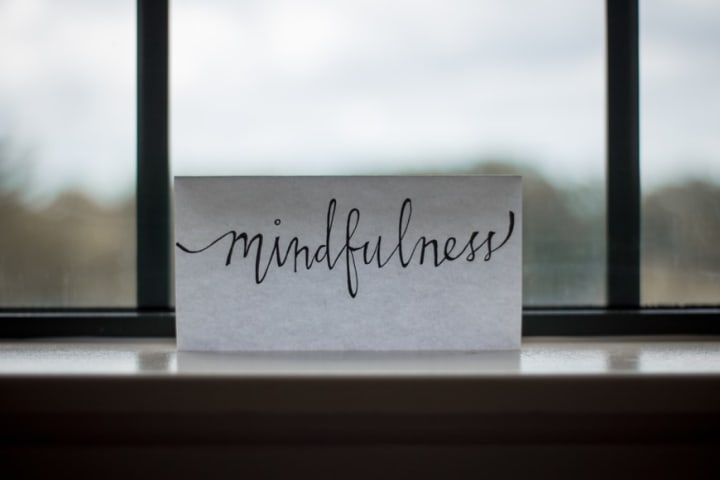
Start writing...Spirituality is the wide idea of believing in something other than oneself. It might include religious traditions centered on the belief in a higher power, but it can also include a holistic belief in an individual's connectedness to others and the planet as a whole.
Instead, it implies the existence of something greater that connects all beings to one another and to the universe as a whole. It also suggests that there is life after death and seeks to answer concerns about the purpose of life, how individuals are related to one another, universal truths, and other mysteries of human existence.
Many people have found solace and release from stress via spirituality and religious activities. While individuals employ a variety of religions and paths to discover God or express their spirituality, research has shown that those who are more religious or spiritual and use their spirituality to cope with life's obstacles reap several health and well-being advantages.
Signs of Spirituality
Spirituality is not confined to a specific path or set of beliefs. There are several methods to encounter spirituality and get the advantages of a spiritual encounter. For others, this may entail faith in a higher power or adherence to a certain religious practice.
Others may have a sense of connecting to a higher state or a sense of interconnectedness with the rest of mankind and the environment. Spirituality manifests itself in a variety of ways, including:
• Inquiring deeply into themes like as pain and what occurs after death Developing closer relationships with others
• Feelings of compassion and empathy for others
• Having emotions of oneness
• Awe and awestruck Ness
• Seeking pleasure via means other than money goods or other external incentives
• Looking for meaning and purpose
Spirituality is not experienced or expressed in the same manner by everyone. Some people seek spiritual experiences in all aspects of their lives, whilst others are more prone to encounter these sentiments under certain circumstances or in certain locales. Some people, for example, may be more prone to have spiritual experiences in churches or other religious sites, whilst others may have these sentiments when out in nature.

Types of Spirituality
Spirituality comes in various forms, ranging from religious traditions to more secular approaches. Some of the primary types of spirituality are as follows:
• Buddhism
• Christianity
• Hinduism
• Humanism
• Islam
• Judaism
• New age spirituality
• Sikhism
Uses
People may turn to spirituality for a variety of reasons, including but not limited to:
• To discover purpose and meaning: Investigating spirituality can assist people in discovering solutions to philosophical issues such as "what is the meaning of life?" and "what is the meaning of my life?"
• To deal with stress, despair, and anxiety: Spiritual experiences can be beneficial in dealing with life's pressures.
• To rekindle hope and optimism: Spirituality can assist people in developing a more optimistic attitude on life.
• To gain a feeling of community and support: Because spiritual traditions frequently entail organized faiths or groups, joining such a group may be a valuable source of social support.
While precise spiritual beliefs are a matter of faith, research has shown that spirituality and spiritual activities have certain advantages. The findings will come as no surprise to anybody who has found solace in their religious or spiritual beliefs, but they are remarkable in that they illustrate scientifically that these activities actually have advantages for many individuals.
Here are a few more of the numerous beneficial discoveries about spirituality and its impact on physical and mental health:
• Religion and spirituality have been found in studies to assist people cope with the impacts of daily stress. According to one research, everyday spiritual encounters helped older persons deal with unpleasant sentiments while also increasing happy sensations.
• According to research, older women are more grateful to God than older men, and they benefit more from stress-relieving health impacts as a result of their appreciation.
• According to study, those who have an intrinsic religious orientation, regardless of gender, have less physiological reaction to stress than people who have an extrinsic religious orientation.
• Those who were intrinsically oriented committed their life to God or a "higher force," but those who were extrinsically oriented used religion to achieve exterior goals such as making friends or enhancing community social standing.
This, along with previous research, suggests that being involved with a spiritual group may have concrete and long-term advantages. This connection, coupled with the thankfulness that often accompanies spirituality, can act as a stress buffer and has been related to improved physical health.
People who feel at ease and comforted utilizing spirituality as a stress coping method may be confident that there is more proof that this is a good option for them. Prayer is effective for both children and adults. Prayer and spirituality have been related to the following:
• Better health
• Greater psychological well-being
• Less depression
• Less hypertension
• Less stress, even during difficult times6
• More positive feelings
• Superior ability to handle stress
Exploring your spiritual side may help enhance your well-being, whether you are rediscovering a lost spiritual path, renewing your devotion to an already well-established one, or finding a new source of spiritual joy.
Spirituality is an extremely personal experience, and each person's spiritual path may be different. However, research reveals that some spiritual stress alleviation practices, independent of beliefs, have proved beneficial to many people. Some things you may do to begin researching spirituality are as follows:
Pay attention to how you're feeling: Part of accepting spirituality is accepting what it means to be human, both the good and the terrible.
Focus on others: Spirituality requires you to open your heart, experience empathy, and aid others.
Meditate: Spend 10 to 15 minutes each morning practicing some sort of meditation.
Start a thankfulness diary and write down what you are grateful for each day. This may serve as a terrific reminder of what is most important to you and what offers you the most joy.
Try mindfulness: By practicing mindfulness, you may become more aware and appreciative of the present moment. Mindfulness teaches you to be less judgmental (of yourself and others) and to focus on the present moment rather than the past or future.

About the Creator
eBook Basket
Knowledge is everywhere






Comments
There are no comments for this story
Be the first to respond and start the conversation.